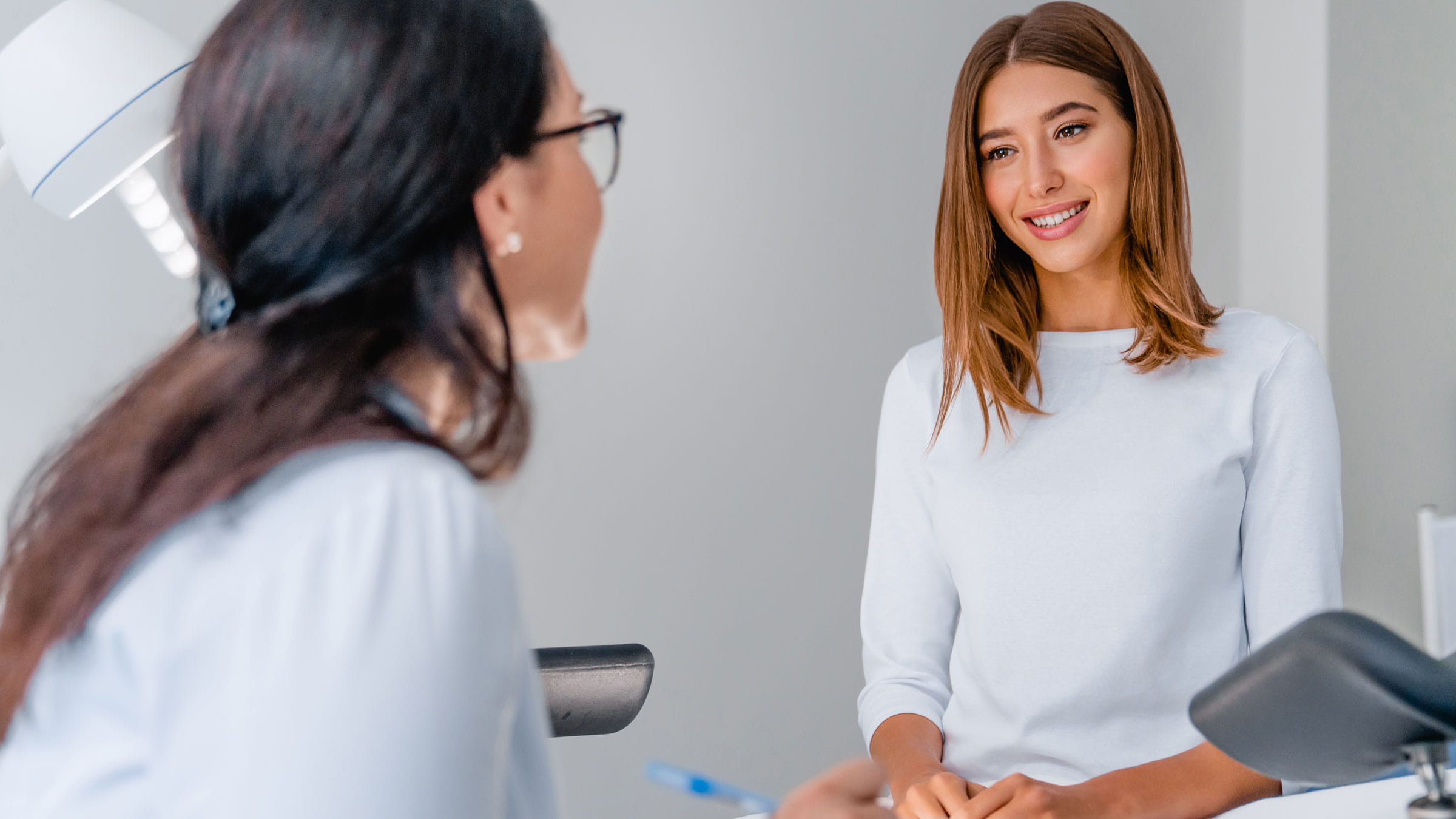
A yearly gynecological exam is an important part of a woman’s health care regimen. Before you’ve had your first appointment, it’s natural to feel a little nervous and to have questions.
As a general rule of thumb, the latest a healthy patient should start seeing a gynecologist is age 21. Some younger patients may want to come in if they’re experiencing painful periods, heavy bleeding or have other concerns. Here’s what you can expect at your first exam.
You can expect discomfort but not pain.
One of the routine elements of a gynecological visit is the pelvic exam. This can be uncomfortable but it’s not typically painful. If you use tampons or are already engaging in penetrating intercourse, then the pelvic exam won’t hurt.
For patients who are not sexually active or do not use tampons, then the pelvic exam may be a bit more unpleasant. However, the physician will talk you through it and the entire procedure is over in just about one minute.
It’s important to note that all patients may request a medical chaperone to be present if that’ll help them feel more at ease. That person could be a mother, sister or friend, too.
A pelvic exam & Pap test are typically performed.
For the pelvic exam, the doctor or nurse will ask you to lie on your back with your knees bent. Typically, you’ll rest your feet against supports or in stirrups which allows for the best angle.
Once you’re in this position, the doctor will evaluate the inside of your vagina and the cervix to check for any abnormalities. They’ll insert a small device called a speculum which opens the vaginal walls and allows for a better look. Patients will feel pressure during this part of the exam but it lasts only a few seconds.
While the speculum is in place, the doctor will typically perform a Pap test. They’ll use a soft brush to collect a sample of cervical cells. Those cells are examined later to check for cervical cancer.
You can also expect the physician to perform a bimanual exam at this stage. They’ll wear gloves that are lubricated to make the process less uncomfortable. The doctor will insert their fingers into the vagina while pressing down on your abdomen with the other hand. This is done to examine the internal organs.
Your doctor will do a breast examination. You’ll lie on your back and the doctor will palpate the area to feel for any abnormalities. During your appointment, your doctor may also offer to do an STD check.
The doctor will ask about your menstrual cycle and sexual history.
A key component of the gynecological exam is the conversation with your doctor. She’ll ask questions about your menstrual cycle. For example, how old were you when you had your first period? What is the interval between periods and how many days do you bleed per cycle? We also ask for a basic medical history, such as medication usage, family history and whether you’ve had surgeries in the past.
You can expect your doctor to ask about your sexual history. This is important in part because we need to know if any sexual activity has been consensual. Your gynecologist’s office is a safe space and we are there as a resource to keep patients safe.
We’ll also ask about the number of sex partners and what type of protection you are using. This is a judgment-free zone. We are only interested in keeping you healthy. In my practice, I focus on safe sex practices as well as discussions about sexually transmitted infections with patients engaging in intercourse. We can discuss birth control options if appropriate.
Ask me anything.
I encourage all of my patients to ask me any questions. Does the patient have any concerns about intercourse, like whether it’ll be painful? Perhaps a patient has a question about the ability to reach orgasm. Again, your gynecologist is there to help and to provide a safe environment to address any and all concerns that you have.
It’s perfectly natural and normal to feel embarrassed or nervous before your first gynecological exam, or even before your second or third exams. I’d estimate that 95% of patients feel that way. Seeing a new provider about your health can always be uncomfortable due to the unknown. I do everything I can to reassure my patients and you can ask me anything, even if it’s not gynecological-related.
However, if you don’t feel comfortable with a specific provider or office, it’s OK to switch doctors. People don’t always “click” and we understand this. Also, if all you want to do is talk at your first appointment, that’s all right! Your doctor can explain everything and that’ll give you the opportunity to establish a comfort level with the provider. Medicine is not cookie-cutter or one-size-fits-all. Every patient is different and should be treated that way.

Take charge of your health
Learn about obstetrics and gynecology services from central Ohio's most experienced team.
Get started




